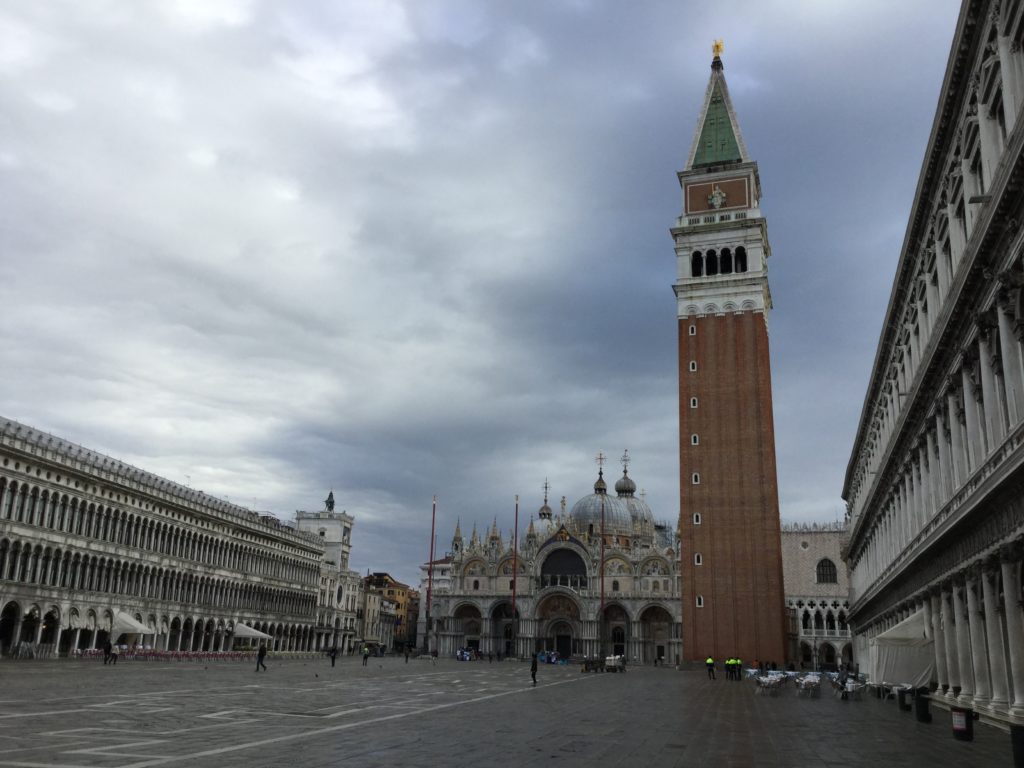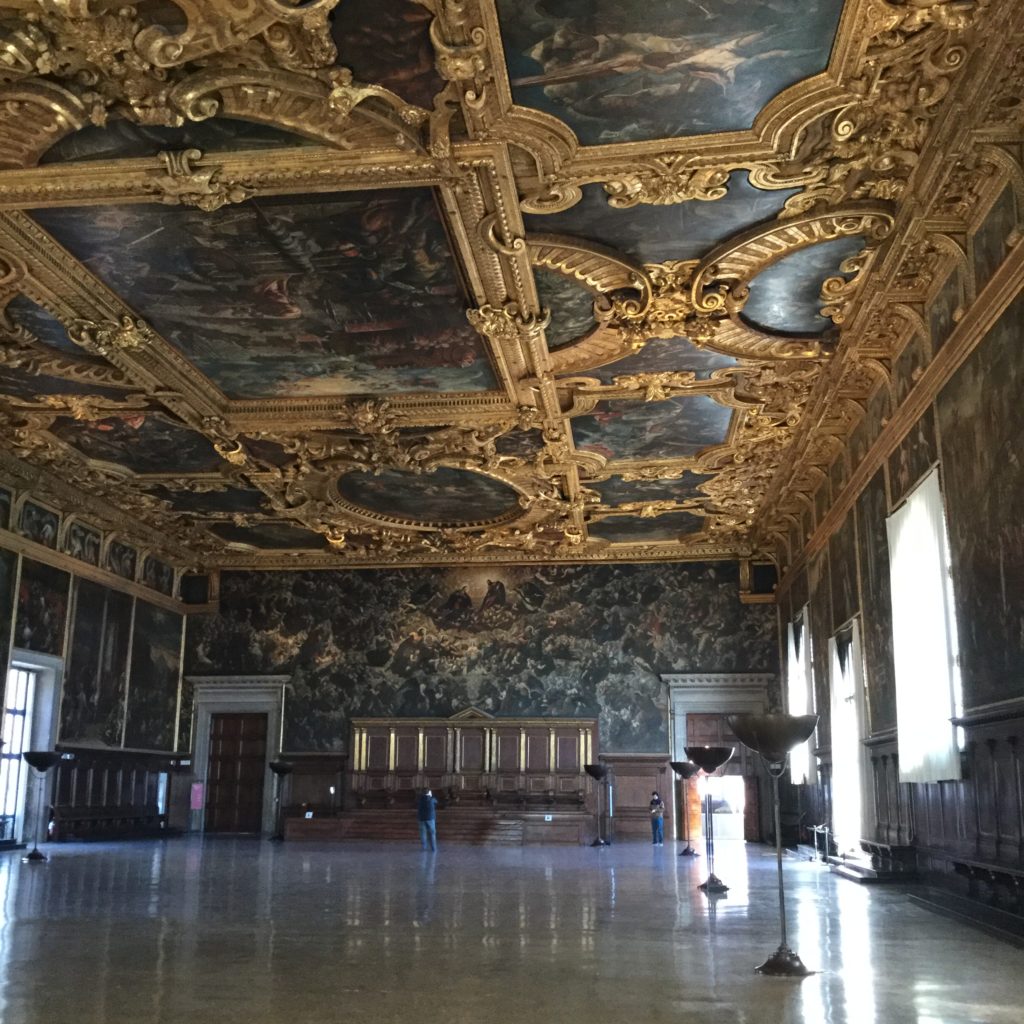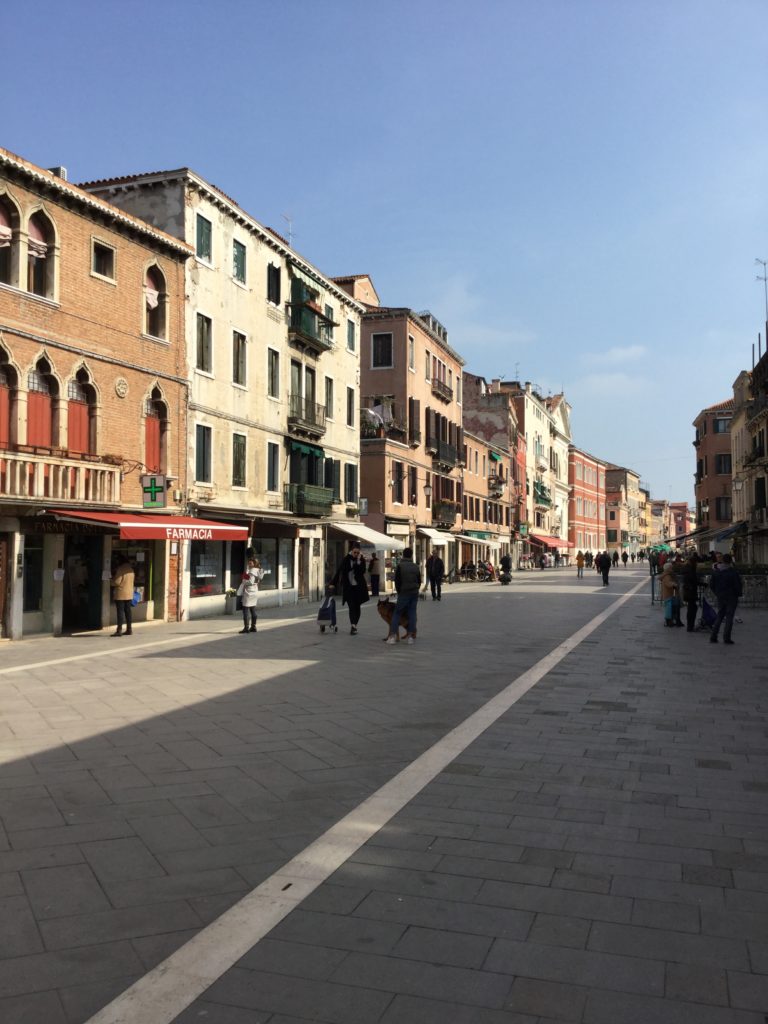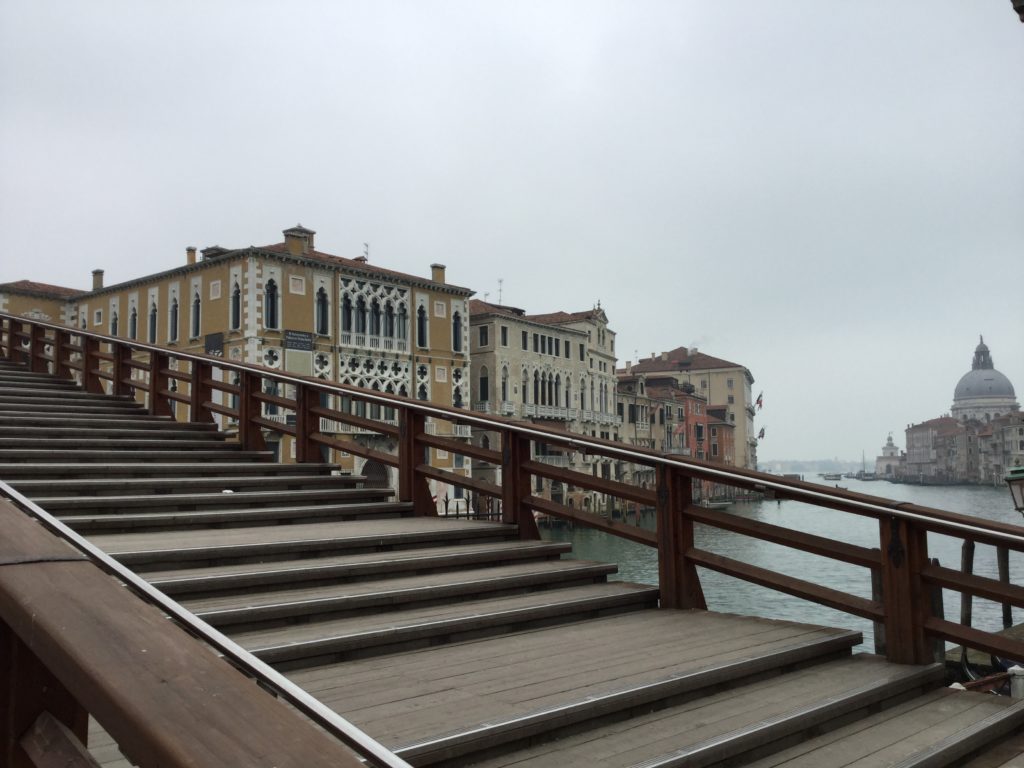
Dr Christian Jessen has suddenly become famous in Italy. On 12th March in a radio interview he played down the dangers of Coronavirus, and gave his measured assessment on the recent measures taken in Italy: ““The Italians, any old excuse to, you know, shut down everything and stop work for a bit and have a long siesta.”
Quite apart from the breathtaking racism and ignorance of this remark (as Italians have pointed out, the word “siesta” is not even Italian), it showed a complete lack of understanding of the gravity of the situation. My first response on Facebook was to post a link to his interview with this comment:
“Send this ignorant racist idiot to one of the hospitals in Lombardy or the Veneto where doctors and nurses are working 16-hour shifts in the intensive-care units at the risk of their own lives. And send him to talk to the thousands and thousands of Italians who are quite likely facing bankruptcy as a result of the shut-down.”
However, leaving aside the fact that such ignorance (and racism) is inexcusable in a doctor, especially one who is apparently well-known (I’ll confess I’d never heard of him until this news-item appeared in my FB feed), it is true that until just three weeks ago the idea that Coronavirus was not much worse than the usual seasonal ’flu was a pretty widespread one in Italy too. I’ll admit that, having no specialist knowledge at all, I myself bought into the notion that the whole situation was being hyped by the media, and I rashly shared on FB a video of a famous Italian art-historian/politician yelling in the Chamber that closing museums and exhibitions was a criminal act (I didn’t even like this man, but just happened to share his resentment against what seemed to be an unnecessary assault on culture). Most people I spoke to tended to go along with the idea that, yes, it was naturally sad that some old people had died from this virus, but that was something that had always happened, and it was absurd to start changing our life-styles.
The fact is that when Jessen made these remarks, just three days ago, the UK was where Italy had been three weeks earlier. A doctor should have known better but perhaps it is not surprising that many ordinary people were still playing things down. Even in this age when news travels instantaneously from one country to another, it is clear that it takes direct personal experience to bring things home to people. For some, sadly, such experience is to hear of a loved one being infected; for others it may be seeing on the news a place they know and love suddenly empty of people; for yet others it may be hearing that Tom Hanks has tested positive… Clearly not all have yet had this direct experience. Even in Italy, doctors in Lombardy are declaring that as yet the south of the country – including the capital, Rome – has not fully taken in the seriousness of the problem. So perhaps it is not so surprising that in the UK people are still attributing the Italian lock-down, if not to laziness, at best to a southern fondness for the melodramatic grand gesture. Perhaps the numerous videos of Italians singing on their balconies (actually very moving, when experienced directly) hasn’t helped here…
In any case, as a friend put it on Facebook, it’s like the Renaissance: things that start in Italy soon spread throughout Europe (another friend added sourly that a better analogy would be the spread of Fascism). So these few scattered notes, which I had thought of posting a few days back with the notion of letting people know what a strange experience we were going through, will perhaps instead serve as a foretaste of what will soon be the dominant style: think of it as a new-found taste for round arches rather than pointed ones, if that is of any help.
So, it didn’t happen all at once. First of all, it was the news of a few small towns in Lombardy and one in the Veneto that had cases of Covid-19: towns no-one had ever heard of before, the Veneto one with the curiously curt name of Vo. We got pictures on the news of carabinieri with protective masks guarding the roads in and out of these towns and pictures of empty streets and piazzas; as so often with Italian towns one’s reaction was “well, that looks nice, must go and visit it when this fuss is all over.” In one town a schoolgirl sent out a plaintive but charming tweet that went (as one can’t avoid saying) viral; it got retweeted by her favourite singer and she was invited onto a popular satirical TV programme to report on the situation.
Yes, there were distressing stories of old people suffering and even dying, but it all seemed reasonably contained in these little towns, reminiscent of the early scenes of The Day of the Triffids. Then gradually there were reports of outbreaks in other parts of Lombardy. We were getting bombarded with messages about washing our hands and avoiding hand-shakes; virologists became familiar faces on television – and their disagreements, previously, one imagines, confined to learned journals, became a spectator sport, giving rise to rival fan-groups. The one who made the most dire predictions, a curmudgeonly figure named Roberto Burioni, was generally dismissed as an alarmist and a Cassandra. Of course, what people forget is that Cassandra’s forecasts were correct. Burioni is now in the position of being able to say, with, one hopes, little real pleasure, “I told you so.” A book of his, Virus: the Great Challenge, has suddenly become a best-seller and is available in every newspaper-kiosk (which are still open).
Here in Venice tourists began to disappear. In a city where people are constantly complaining about the excessive number of visitors it was natural enough for many to see a bright side here. I myself posted not-quite gloating pictures of an empty Piazza San Marco. I visited the Doge’s Palace and had the Sala del Maggior Consiglio entirely to myself and the custodian. In the Accademia I was alone in the room with Carpaccio’s just-restored St Ursula Cycle for at least twenty minutes. These were undoubtedly pleasurable experiences – even if the spectral silence of the city around me was ominous and unsettling.

And now we were getting constant news-reports of intensive-care units in Lombardy and the Veneto being under severe strain. The percentage of those who did not recover began to grow – and they were no longer confined to old people whose health was already severely compromised. A picture of a nurse who had collapsed with fatigue over the keyboard of her computer got into all the papers and onto the TV news. Confusion raged over who was responsible for such decisions as closing schools and universities, closing restaurants and bars, stopping church-services: the governors of the regions, the city-mayors, or the central government?
Eventually the central government decided to take command. Unfortunately, the first major decision – that of sealing off Lombardy and certain parts of the Veneto – was leaked to the press before the decree was actually ready, and it was announced on the evening news. That evening the central station in Milan underwent a mass-assault as southerners rushed to scramble aboard the last trains back to “safety” in the south. The governor of the southern region of Puglia broadcast a desperate plea to his fellow-Pugliesi to go back to Lombardy, rather than endanger their loved ones in their southern homes. All in vain.
And so just a couple of days later came the drastic decision to convert all of Italy into zona rossa (red zone), shutting down all non-essential commercial (and non-commercial) activities throughout the country. Flights stopped leaving and arriving. The streets emptied. Silence fell upon the cities – until, of course, the consolatory ritual of the flash-mob balcony concerts started up.
That is the situation now. There is no actual curfew – you are allowed to go to the shops and even for a short stroll, so long as you do not cause an assembramento (crowd). Small shops will only allow one customer to enter at a time, and everyone forms an orderly queue outside – standing at a metre’s distance from one another. Yes, Italians do know how to queue.

All of this happened in the space of three weeks. Suddenly we – by which I mean all the sceptics and down-players – were forced to accept we had been wrong and the “alarmists” right. If not the Black Death, and if not even the Spanish ’flu, this was something truly serious that was going to change our lives drastically.
Of course, just as I am saying that my own native-country, the UK (and the rest of Europe), should take warning from Italy, so should Italy have taken warning from China. After all, we had seen the alarming reports from Wuhan, with pictures of massed hospital wards and streets peopled only by officials in hazmat suits. But China is a very long way away; and there have been scary stories from there in the past that came to nothing (at least, as regards actual danger to the rest of the world). The Governor of the Veneto region was actually recorded live declaring that there was little risk to Europeans; after all, we live much healthier lives than the Chinese, who, as everyone knows, eat live rats (he was forced to write a grovelling letter of apology to the Chinese Ambassador).
Venice, of all places, should have known to take warning of health-hazards that come from the east. With its great trading networks, stretching out to the Black Sea and beyond, it was always one of the first ports of call for the repeated assaults of the plague. Two of its greatest churches – the 16th-century Redentore and the 17th-century church of La Salute – were built as thanks-offerings for delivery from pestilence. Indeed, the two most important festivals in the Venetian calendar, even more enthusiastically celebrated than St Mark’s Day, are devoted to these churches. The Venetians stole the body of San Rocco, the patron-saint of plague-victims, from Montpellier in France, and built a splendid church and Scuola in his honour. And as all the guidebooks will tell you, the Venetian mask with the long beak was originally a protective device for plague-doctors. The Venetians even invented the quarantine system, using the small islands that dot the lagoon as isolation-units for travelers from places suspected as sources of infection.
But, of course, all that was history. Such things don’t happen in the age of the Internet and antibiotics.
Until they did. Then the situation began to get very real. Speaking of my own personal experience, the first step was that the university suspended lessons for two weeks, giving us the choice of delivering on-line lessons or arranging to reschedule catch-up lessons once normality was restored in mid-March. Which, of course, it hasn’t been. Now there is no choice: we have to do on-line lessons – and this, for many (myself included) is a learning experience in itself. This is due to continue until at least 3rd April, but few believe that we will be returning to crowded classrooms on that date.
I myself can hardly complain. I am able to continue my job, even if in very changed circumstances, my pay-cheque will continue to be paid (at least, unless the Italian state goes bankrupt), and I have a fairly comfortable house full of books and equipped with Netflix (and even a sufficient supply of toilet-paper). And I can write blog-posts like this and catch up on social media with friends in similar circumstances.
But for many, particularly in a city where tourism is the principal industry, financial hardship and even possible ruin are not a distant prospect. This, Dr Jessen, is not a siesta. And if it is a siesta, all too soon I suspect the UK will be forced to adopt this Mediterranean custom in some form or other. Already I am receiving emails from Italian students on Erasmus exchanges now blocked in the UK and deeply worried by what they see as British insouciance in the face of clear and present danger. They see it because they are in touch with people from their home-country – and because they are not blinded by ignorant prejudices about Italians as over-reacting Harlequins.
Next Wednesday I will be the “Presidente” of a commissione di laurea; this is the final academic session for M.A. students, in which they discuss their dissertations and are then awarded their degrees. This was due to take place in Ca’ Dolfin, in the splendid frescoed Aula Magna, with its Murano chandeliers and great ceremonial mirrors (replacing Tiepolo canvases, now adorning the walls of the Metropolitan, the Hermitage and the Kunsthistorisches Museums); the graduands usually attend accompanied by a host of friends and relatives, who then celebrate their triumphs boisterously in the nearby bars and restaurants. This time it will just be me in front of a computer and (I hope) a technician, while the other members of the commission and the graduating student join me on Google Meet. Until last week the whole commission would gather in the room with the computer and the student would be at home, surrounded by friends and relatives. Now only those relatives already living in the same house as the student will be on hand to celebrate, and the other members of the commission will join the event telematically from their own homes. I was not even intended to be the President of the commission, but the colleague who had formerly been assigned this role lives in Padua, and clearly that would be an unnecessary journey. And so I was asked to step in.
I am certainly not complaining. Indeed, I’m even looking forward to it. I will have the opportunity to walk all the way across the city, clutching my certificate declaring the purpose of my journey in case I’m stopped by the police, and the walk itself will be quite a privilege. I’ll certainly walk through Piazza San Marco and cross the Accademia Bridge. There’s no knowing when I’ll next get a chance for such a trip.
But although beautiful in its quiet splendour, it will also be a strangely desolate city that I will be walking through.


Hi Gregory; I hope it’s okay that I forward your excellent article to my Facebook page. Its is beautifully written as well as deeply meaningful
Best,
Sandra P.
ps. Plans to visit Venice this year in December and March were thwarted and the same seems true of June. It would be awful to break that pattern of annual visits going back over 40 years.
Sandra, I’d be honoured if you shared it! Thanks for the very kind words. And I hope it will soon be possible for you to come back.
I am hoping for my annual trip to Venice in June. My husband has painted Venice for the last 30 years. Check out his website: tomparish.net tom paints a silent Venice..
Thanks for the link. The paintings are wonderful. I hope you’ll be able to come back in June. Let’s hope for a return to normality by then…
Thank you for this. Heartbreaking, and very informative. My regards to you (we met when I visited Venice with Mary Ann Zimmerman in 2004), and to your wonderful Patrizia who took such great care of my group in the Veneto about three years ago.
Dear Peg M, thank you for commenting. I’m glad you liked it. I remember the visit with Mary Ann well. I’ll pass on your good wishes to Patrizia. I hope you’ll be able to come back soon.
Hi, Gregory. I’d like to share your blog on my facebook page. May I?
I don’t know why this picture has covered my comment but here it is again, Gregory. I would like ot post your blog on my facebook page. May I?
I don’t know what you’re seeing, Shobhana, but I can see both of your comments. Apologies for the slow response. Please do share my piece! I’d be very happy if you did. Thanks!
What a beautiful report, Gregory! I sent it to my English friends. They have to understand what’s going on here.
Thank you
Tiziano
Thanks so much, Tiziano. I’m very glad you like it. And thanks for sharing it. You’re right; they really don’t seem to have grasped it yet.
Hi, Greg, thank you for this earnest and honest account of Covid developments in Italy.
I’ve narrowly escaped from Italy on March, 5. Then it was quite different. I even managed to visit the Raphael exhibition in the Scuderie del Quirinale.However, at Moscow airport all the passengers were met by a medical team and I’m still on the self-imposed home quarantine. I’m watching closely news from Italy, sorrowfully they are very sad.
It’s a great pity, that I’ve come upon your very interesting blog on this sad occasion. I look forward to your new posts.
Take care,
Tatiana
Thanks, Tatiana. I’m glad to hear they’re taking serious precautions in Russia. And I’m glad you got to see the Raphael exhibition. I had been hoping to see it this month myself; I hope it will reopen eventually.
I’ll keep posting – and I hope with better news soon…
Gregory
Thanks,Greg, for your response!
I hope that you’ll manage to visit the exhibition. In fact, I had a great privilege to enjoy Raphael’s masterpieces almost alone because I was first to enter the gallery and there were very few visitors. Besides great pictures there were many drawings.
I wish you to survive this difficult period and as for me, I strongly hope to return in Italy this summer.
Tatiana
Tatiana, that was a real privilege!
Thanks for the good wishes. And the same to you – and I hope you make it back in June.
Gregory
Thank you Gregory for your wise thoughts, which I am planning to share with friends who also love Venice.
Sadly you may be right that England is still in the phoney war stage.
Today has been a lovely day, with sunshine and spring flowers to lift the heart.
Best wishes from London
Sarah
Thanks, Sarah. I’d be grateful if you shared it. Watching Boris Johnson at the moment; there still seems to be no idea of imposing any measures – not even the closure of cinemas or theatres. Just strong advice. Let’s hope they get serious soon. All best wishes – and I hope you’ll be able to make it back to Venice soon (where the weather is also good right now).
Gregory
Thank you for this informative and saddening information, which I have encountered via another blog. I’ve usually been in Venice in the winter months, if not pre-Christmas, then post New Year, but this year couldn’t manage either … and now it seems as if it will be quite a long time before I may be able to return.
Thank you for your comment. I’m glad you found it informative. I hope that it won’t be too long before visitors will be able to return (maybe in slightly reduced numbers, which wouldn’t be bad…). Today I had my walk across the city, as I mentioned in the blog, and it was extremely beautiful but also very unsettling.
Hi Gregory–Thank you for sharing this view of Venice and the pandemic’s effects. I wish I could send it to all the naysayers out there to convince them to take this seriously. I hope I’ll be able to visit as planned in late June, but if not, let’s keep in touch.
Thanks, Kathy. I’ve a feeling the naysayers are fewer and fewer, as the evidence of the tragedy mounts.
I hope you will be able to make it in June, but obviously there’s no knowing how long this is going to last. Let’s hope for the best – and, as you say, we will keep in touch.
Hello Gregory, Your somber images of a forlorn Venice are particularly affecting as New York has become another ‘epicenter’. I enjoyed your August 2019 interview with David Hewson, recorded in Venice at an outdoor table, where he worries about background noise. As I watched it, I thought, no need to fret about noise today. Venice must be as silent as New York, with a muted aural ambience that mirrors the visual one you captured. I miss my mega-decibel soundscape with its din of life. If we’re lucky, it will be heard once more in a new New York, and in it’s own inimitable version, in a revitalized Venice, sooner than we dare hope. I promise never to complain about noise again. Thank you for your reports and very best to all the Casa novisti. Be well, everyone.
Valerie, yes, the silence is very striking, as is the stillness of the water. Of course, I can’t now go into the centre of town but from my eastern corner I do get to look across the lagoon towards San Marco, and the calmness is remarkable.
Yes, I feel as you do about the noise – and I even find myself saying that I’ll never complain about the number of tourists again…
I hope we’ll get to talk about Casanova again soon with a proper accompaniment of normal background bustle and chatter.